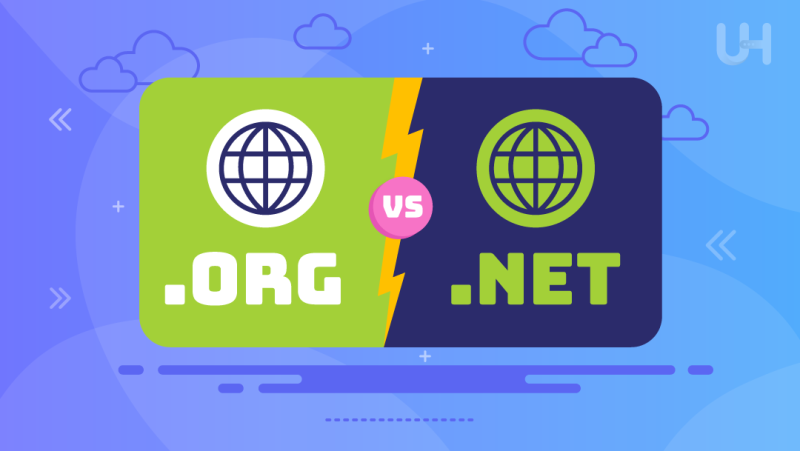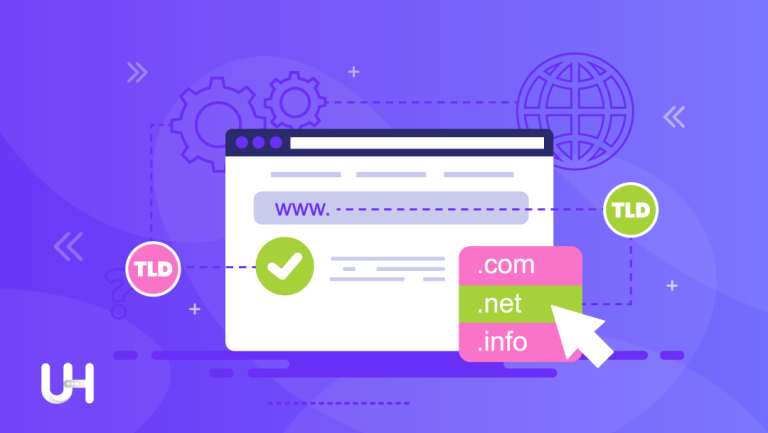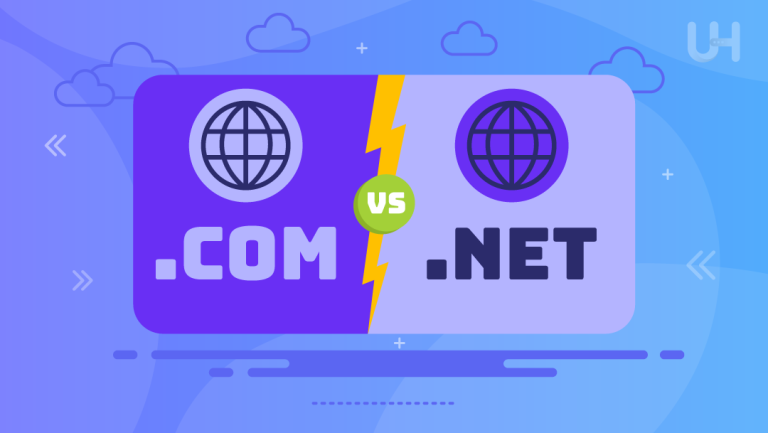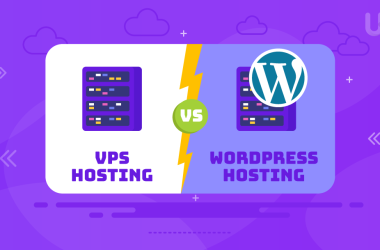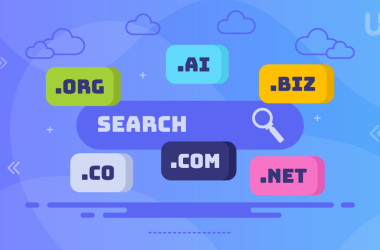When establishing a presence online, one of the critical decisions you’ll face is choosing the right domain extension. Two popular choices, .ORG vs .NET, offer distinct advantages depending on your organization’s goals and audience.
Domain extensions, also known as top-level domains (TLDs), are the suffixes attached to website URLs. They signify different categories or origins of websites. Among the myriad options available, .ORG and .NET stand out due to their widespread use and specific connotations.
Selecting the appropriate domain extension is akin to choosing the right location for a brick-and-mortar business. It directly influences how your website is perceived by visitors and can impact its credibility, trustworthiness, and visibility in search engine results.
In this blog, we will discuss the basics of .ORG and .NET domains. Moreover, highlighting their differences, suitable use cases, and strategic advantages. By the end, readers will gain a clearer understanding of which domain extension best aligns with their organizational objectives and target audience.
Whether you’re representing a nonprofit seeking to inspire trust and credibility through a .ORG domain or a tech startup aiming for a broader commercial appeal with a .NET domain, the decision holds significant implications for your online identity and success. Let’s explore these domains in depth to help you make an informed choice for your website.
What is .ORG Domain?
The .ORG domain extension, originally introduced in January 1985. It holds a significant place in the history of the internet and continues to serve a distinct purpose in online branding and identity.
The .ORG domain, derived from the word “organization,” was among the first generic top-level domains (gTLDs) established during the early development of the internet. Its primary objective was to designate non-profit organizations, distinguishing them from commercial entities (dotCOM domains) and educational institutions (.EDU domains with WordPress hosting for education). This designation was pivotal in shaping the perception and purpose of .ORG domains as a symbol of dedication to social causes, community service, and public benefit.
Purpose of .ORG Domains (Non-profit Organizations)
Initially, .ORG domains were exclusively reserved for non-profit organizations. These entities utilized .ORG addresses to communicate their mission-driven activities, including charitable work, advocacy, education, and humanitarian efforts. The .ORG extension became synonymous with trustworthiness, credibility, and transparency in the digital realm, reflecting the values of integrity and service inherent to non-profit endeavors.
While .ORG domains were initially restricted to non-profits, their usage has evolved significantly over the decades. Today, .ORG domains encompass a diverse range of organizations beyond traditional non-profits. This expansion includes associations, foundations, clubs, religious groups, open-source projects, and various community-oriented initiatives. These entities choose .ORG domains to convey a sense of community, collaboration, and commitment to public interest, leveraging the extension’s established reputation for integrity and purpose-driven activities.
Examples of Popular Websites Using .ORG Domains
- Wikipedia (wikipedia.org): One of the most visited websites globally, Wikipedia operates under the .ORG domain as part of the Wikimedia Foundation, a non-profit organization dedicated to providing free and accessible knowledge to everyone.
- Amnesty International (amnesty.org): An international human rights organization that utilizes the .ORG domain to advocate for justice, freedom, and human rights worldwide.
- Mozilla Foundation (mozilla.org): The organization behind the popular Firefox web browser and other open-source initiatives, promoting an open and accessible internet under the .ORG domain.
These examples highlight the diversity of entities that utilize .ORG domains to establish their online presence, each contributing to the extension’s legacy of promoting positive social impact and communal engagement. Despite its expanded usage, the .ORG extension continues to uphold its reputation as a symbol of dedication to public service and societal benefit, making it a preferred choice for organizations seeking to align their online presence with values of integrity, community, and purpose-driven action.
Ready to Choose Your Perfect Domain?
Explore your options and secure your .ORG domain today at Ultahost. Start building a strong online presence that resonates with your audience and supports your mission. Don’t wait—your ideal domain is just a click away!
What is .NET Domain?
The .NET domain extension, originally conceived and launched with a specific focus, has evolved into a versatile and widely adopted choice for various types of online entities.
Introduced in 1985 alongside .ORG and .COM, the .NET domain extension was initially intended to serve as a specialized namespace for entities involved in networking technologies and internet-related services. The term “NET” in .NET stands for “network,” reflecting its original association with networking infrastructure and technology-oriented enterprises.
During its inception, the .NET domain quickly became synonymous with technology companies, internet service providers (ISPs), software developers, and other businesses directly involved in network infrastructure and online services. Its adoption was driven by the need for a distinct online identity that conveyed technical expertise and a focus on digital connectivity.
Over time, the scope of .NET domains has expanded beyond its original niche. Today, .NET domains are utilized by a diverse array of businesses, startups, and individuals seeking a credible and professional online presence. This expansion includes technology startups, small businesses, personal websites, and entrepreneurial ventures across various industries. The versatility of .NET domains allows them to cater to entities looking to emphasize innovation, reliability, and technological proficiency in their online branding.
Examples of Popular Websites Using .NET Domains
- SourceForge.net: A widely recognized platform for open-source software development and distribution, SourceForge.net showcases the collaborative efforts of developers from around the world.
- Speedtest.net: A highly popular site for testing internet speed, Speedtest.net provides a reliable service for millions of users seeking to measure their broadband performance.
- Behance.net: A leading platform for creative professionals, Behance.net allows artists, designers, and other creatives to showcase their portfolios and connect with potential clients and collaborators.
These examples showcase how .NET domains continue to be leveraged by entities aiming to underscore their technological prowess, innovation, and credibility in the digital landscape. Whether used by established tech giants or emerging startups, .NET domains remain a preferred choice for entities seeking a robust online presence aligned with the principles of connectivity, innovation, and digital expertise.
Secure Your Ideal Domain Today!
Explore your options and secure your .NET domain today at Ultahost. Start building a robust online presence that aligns with your business goals and appeals to your audience. Don’t miss out—your perfect domain is waiting!
Key Differences Between NET vs ORG Domain
Choosing between ORG and NET domain extensions involves understanding their distinct purposes, perceptions, SEO implications, availability, and pricing, all of which play crucial roles in shaping your website’s identity and online presence.
Purpose and Target Audience
Originally designated for non-profit organizations, .ORG domains emphasize missions related to charitable causes, community service, education, and advocacy. They are widely recognized for promoting trustworthiness, credibility, and transparency in their endeavors.
Over time, .ORG domains have expanded beyond non-profits to include various organizations, associations, clubs, and communities committed to social impact and public service. Choosing a .ORG domain often signals a commitment to community and public welfare.
Introduced with a focus on networking and technology, the .NET domain was initially geared towards businesses and entities involved in internet infrastructure, software development, and technology services. .NET domains traditionally appeal to businesses seeking to highlight their technical expertise, innovation, and connectivity.
Today, .NET has evolved to encompass a broad spectrum of businesses, startups, and personal projects across different industries. It represents a versatile choice for entities looking to project professionalism, technical proficiency, and a forward-thinking approach.
Perception and Trustworthiness
The choice of domain extension can significantly influence how a website is perceived by visitors. The .ORG domains are often associated with trust, credibility, and integrity due to their alignment with non-profits and community-oriented initiatives. Users tend to view .ORG websites as reliable sources of information, committed to social causes and public service.
In contrast, .NET domains are perceived as indicative of technological expertise, innovation, and reliability. Businesses and individuals using .NET domains are seen as knowledgeable in their fields, offering advanced solutions and services within the digital landscape. The perception of .NET websites emphasizes professionalism and a strong technical foundation.
SEO and Visibility
Previously, domain extensions like .COM were considered more advantageous for SEO due to their prevalence and user familiarity. However, search engine algorithms have evolved to prioritize content relevance, quality and quantity of backlinks, and user experience over domain extension alone. Both .ORG and .NET domains can achieve strong SEO performance when optimized effectively with relevant content and SEO best practices.
There is no inherent SEO advantage of one extension over the other solely based on the domain extension itself. Factors such as content quality, website structure, mobile responsiveness, and loading speed play more significant roles in determining search engine rankings.
Availability and Pricing
.ORG domains are widely available, with a broad selection of names to choose from. While many desirable .ORG domain names may be taken, there is still ample opportunity to find a suitable domain for your organization or initiative. .NET domains also offer good availability, catering to a diverse range of businesses and personal projects seeking a professional online identity.
The pricing of .ORG and .NET domains varies depending on the registrar and specific domain name. Generally, .COM domains may command slightly higher prices due to their popularity and widespread use. The .ORG and .NET domains are competitively priced. Therefore, making them accessible options for organizations and individuals looking to establish a credible online presence without significant cost barriers.
Factors to Consider When Choosing Between .ORG and .NET
Choosing the right domain extension between .ORG and .NET involves considering several critical factors that can impact your organization’s online presence, branding, SEO efforts, and legal compliance.
Nature of Your Organization
The nature and mission of your organization are pivotal in selecting the appropriate domain extension. If your organization is a non-profit, charity, community group, or advocacy organization primarily focused on social causes, a .ORG domain is often the preferred choice. The .ORG extension carries a longstanding association with non-profits and community-oriented initiatives. Moreover, it emphasizes credibility, trustworthiness, and a commitment to public service.
Conversely, if your organization operates in a tech-centric industry, software development, internet services, or any field where technical expertise and innovation are paramount, a .NET domain may better align with your brand identity. The .NET extension originally catered to businesses involved in networking technologies. Now, broadened to encompass a wide range of businesses, startups, and personal projects across various sectors. Choosing a .NET domain signals professionalism, technical proficiency, and a focus on cutting-edge solutions.
Target Audience and Branding
Consider how your chosen domain extension will influence audience perception and branding. A .ORG domain tends to resonate with audiences seeking community engagement, social impact, and reliability in non-profit or community-driven sectors. It can reinforce your organization’s dedication to social causes and foster trust among stakeholders.
On the other hand, a .NET domain can position your brand as technologically adept, reliable, and forward-thinking. It appeals to audiences looking for advanced technological solutions, professional services, and innovative approaches. The .NET extension underscores your commitment to technical excellence and can attract clients, customers, or supporters interested in cutting-edge technology and digital services.
SEO Implications
While domain extension itself does not directly affect SEO rankings, it can indirectly influence SEO performance based on user perception and keyword relevance. Consider how your domain choice aligns with your SEO strategy, content focus, and user intent. Both .ORG and .NET domains can achieve strong SEO results when combined with high-quality content, effective keyword targeting, and a well-structured website optimized for user experience.
Focus on creating valuable, relevant content that addresses your audience’s needs and interests, regardless of the domain extension. Ensure your website is technically sound, mobile-friendly, and optimized for speed and usability to enhance SEO performance over time.
Availability and Pricing Considerations
Evaluate the availability of domain names under each extension. ORG domains, due to their historical association with non-profits and community organizations, may have fewer available options for desirable names. However, creative naming strategies and flexibility can help you find a suitable .ORG domain that aligns with your organization’s name or mission.
.NET domains offer a wide range of available names across different industries and sectors. They are generally accessible and provide flexibility in choosing a domain name that reflects your brand identity and industry focus.
Compare pricing among domain registrars for NET or ORG domains. Pricing may vary based on domain availability, renewal fees, and promotional offers. Consider your long-term budget and cost considerations when selecting a domain extension, ensuring it aligns with your financial resources and organizational priorities.
Legal and Compliance Considerations
Ensure your chosen domain extension complies with legal and regulatory requirements relevant to your organization. For .ORG domains, verify that your organization meets the criteria for non-profit status, charitable activities, or community service initiatives. Adhere to legal standards and regulations governing non-profit organizations in your jurisdiction to maintain compliance and uphold your organization’s reputation.
Similarly, organizations using .NET domains should consider industry-specific regulations, trademark laws, and intellectual property rights. Conduct a thorough search to avoid potential legal disputes and protect your brand identity from unauthorized use or infringement.
By carefully evaluating these factors, you can make an informed decision between .ORG and .NET domains . It enhances your online presence, supports your branding efforts, and aligns with your strategic goals. Each domain extension offers unique advantages and considerations. Choosing the right one involves weighing these factors to maximize the impact of your online identity and achieve your goals.
Choosing Between .ORG and .NET

Deciding between .ORG and .NET domain extensions involves a thoughtful assessment of several key factors to ensure alignment with your organization’s goals, audience expectations, and long-term growth strategy. Here’s a detailed exploration to guide your decision-making process:
Tips for Making an Informed Decision
Evaluate Your Organization’s Focus
Begin by understanding the core mission and focus of your organization. If your entity is a non-profit organization, charity, community group, or advocacy initiative dedicated to social causes, a .ORG domain is typically the preferred choice. .ORG domains carry a strong association with trustworthiness, credibility, and a commitment to community service. They signal to stakeholders that your organization prioritizes social impact and transparency in its operations.
Assess Industry and Audience Alignment
Consider your organization’s industry sector and target audience preferences. A .NET domain may be more suitable if your organization operates within a technology-driven field. Such as software development, IT services, or innovative digital solutions. The .NET extension emphasizes technical proficiency, innovation, and professionalism. Therefore, appealing to clients, partners, and stakeholders looking for advanced technological capabilities and expertise.
Consider Brand Identity and Perception
Reflect on how each domain extension will shape your organization’s brand identity and perception. A .ORG domain reinforces a sense of community, reliability, and dedication to social causes. It resonates well with audiences expecting transparency and ethical practices from non-profits and community-oriented organizations.
In contrast, a .NET domain positions your organization as technically adept, innovative, and forward-thinking. It projects professionalism and expertise, which can attract clients, investors, or partners seeking cutting-edge solutions and industry leadership.
SEO and Online Visibility
While domain extension itself does not directly impact SEO rankings, consider how your chosen extension aligns with your SEO strategy. Ensure your domain choice supports your SEO efforts by integrating relevant keywords. Moreover, providing valuable content and optimizing your website for user experience and search engine algorithms. Both .ORG and .NET domains can achieve strong SEO performance when coupled with effective SEO practices and high-quality content.
Importance of Aligning Domain Choice
- Organizational Goals: Your domain extension serves as a digital representation of your organization’s identity, values, and mission. It plays a crucial role in shaping how stakeholders perceive your brand and interact with your online presence. Aligning your domain choice with your organizational goals reinforces brand consistency and clarity in communication.
- Audience Expectations: Consider how different domain extensions influence audience perceptions and expectations. A .ORG domain may reassure donors, volunteers, and supporters of your commitment to social causes and ethical practices. On the other hand, a .NET domain can attract tech-savvy customers, investors, or business partners seeking technological innovation and expertise.
- Strategic Alignment: Ensure your domain choice strategically aligns with your overall branding strategy and market positioning. It should complement your organization’s values, messaging, and strategic initiatives. Furthermore, enhancing your competitive edge and differentiation within your industry or sector.
By carefully evaluating these factors—such as your organization’s focus, industry alignment, brand perception, SEO considerations, and long-term growth potential—you can make an informed decision between .ORG and .NET domains. Remember that your domain is an integral part of your online identity and plays a pivotal role in shaping perceptions. Moreover, attracting stakeholders and supporting your organization’s success and growth over time.
Pros and Cons of .ORG and .NET
Choosing between .ORG and .NET domains involves understanding the unique benefits and drawbacks of each extension. Here’s a detailed look at the pros and cons of .ORG and .NET to help you make an informed decision.
.ORG Pros and Cons
The .ORG domain extension is synonymous with credibility and trust, making it an ideal choice for non-profits, charities, and community projects. This extension has a long-standing reputation for being associated with ethical practices, transparency, and a commitment to social impact. Organizations using .ORG are often perceived as reliable and authoritative. It can enhance their domain reputation and foster increased engagement and support from the public. This makes .ORG particularly effective for educational institutions, advocacy groups, and any initiative focused on community service and social good.
However, the strong association of .ORG with non-profit and community sectors can also be a disadvantage for commercial enterprises and tech-focused businesses. Using a .ORG domain for a for-profit company might create confusion among users and misalign with their expectations. The domain extension’s identity is so firmly rooted in the non-profit sector that it offers limited flexibility for businesses. Therefore, making it less suitable for varied business models and commercial endeavors.
.NET Pros and Cons
The .NET domain offers significant versatility, making it suitable for a wide range of businesses, especially those in the technology sector. Originally intended for networking technology companies, .NET has expanded its scope. It is used by startups, tech firms, and personal projects looking to emphasize their technological expertise and innovative capabilities. The professional and tech-savvy image projected by a .NET domain is advantageous for businesses seeking to highlight their industry knowledge and technical proficiency. This extension is broadly recognized and accepted across various industries, providing flexibility in branding and market positioning.
Despite these advantages, .NET domains are sometimes perceived as a secondary option to .COM. Users often default to .COM when recalling website addresses, which can result in potential traffic loss if the .COM version of the domain is owned by another entity. Additionally, while .NET is versatile, it lacks the specific identity that .ORG offers. The broader application of .NET does not convey a distinct type of organization or mission. Itll can dilute its branding effectiveness for certain audiences looking for clear and specific associations.
Understanding the strengths and limitations of both .ORG and .NET domains is essential for selecting the extension that best aligns with your organizational goals. Whether prioritizing the credibility and trust of .ORG or the versatility and professional image of .NET, your domain choice plays a crucial role in building a strong and effective online presence.
Future Trends and Predictions
The landscape of domain extensions, including .ORG and .NET, is continually evolving. Several potential changes and emerging trends could influence the popularity and usage of these domains in the future.
Potential Changes in Popularity and Usage
The popularity of .ORG and .NET domains may shift as the internet ecosystem evolves. ORG domains are likely to maintain their credibility and trustworthiness. However, as more organizations focus on corporate social responsibility (CSR) and seek to emphasize their social impact, .ORG domains might see increased adoption beyond traditional non-profits. This broader usage could enhance the diversity of .ORG websites while maintaining their core reputation for ethical and community-focused initiatives.
On the other hand, .NET domains could continue to grow in popularity among tech startups, digital businesses, and innovative projects. The versatility and professional image of .NET make it an attractive option for a wide range of enterprises with entreprise domain. As technology sectors expand and new tech companies emerge, the demand for .NET domains may rise. Further solidifying its position as a credible alternative to .COM for businesses emphasizing technical expertise and innovation.
Emerging Trends in Domain Naming Conventions
Emerging trends in domain naming conventions are likely to impact both .ORG and .NET domains. One significant trend is the increasing use of new generic top-level domains (gTLDs), such as .tech, .health, .eco, and others. These new gTLDs offer more specific and descriptive alternatives. Moreover, allowing organizations to choose domains that precisely match their industry or mission. While .ORG and .NET have established reputations, these new gTLDs might draw attention away by providing more tailored options for branding and identity.
Another trend is the growing emphasis on shorter, memorable, and keyword-rich domain names. As competition for desirable domains intensifies, businesses and organizations are becoming more creative with their naming strategies. It is to secure domains that are easy to remember and relevant to their audience. This trend could lead to innovative combinations and the use of domain hacks to stand out in a crowded online space.
The rise of voice search and mobile internet usage is also influencing domain naming conventions. As more users rely on voice-activated assistance to browse, domains that are easy to pronounce and spell are gaining importance. This shift could affect how organizations choose their domains, emphasizing simplicity and clarity to enhance accessibility and user experience.
Conclusion
Choosing the right domain extension is a critical decision that can significantly impact your organization’s online presence and brand perception. Both .ORG and .NET offer unique advantages and cater to different types of organizations and goals. The .ORG domain is synonymous with credibility and trust. Therefore, making it ideal for non-profits, charities, and community-focused projects. Its strong association with social impact and ethical practices can enhance the reputation and engagement of mission-driven organizations.
On the other hand, the .NET domain stands out for its versatility and professional image. It is particularly suitable for tech companies, startups, and digital businesses. It conveys technical expertise and innovation, appealing to a wide audience looking for advanced solutions and services.
For reliable and high-performance hosting solutions to complement your domain choice, explore Ultahost Blog Hosting. Discover how the right hosting can enhance your website’s performance and user experience.
FAQ
What is the main difference between .ORG and .NET?
.ORG is typically used by non-profits and community organizations, emphasizing credibility and trust. .NET is used by tech companies and startups, highlighting technical expertise and innovation.
Is .ORG only for non-profits?
No, while commonly associated with non-profits, .ORG can be used by any organization that wants to highlight its community-focused mission.
Is .NET a good alternative to .COM?
Yes, especially for tech-related businesses. However, .NET is often seen as a second choice to .COM.
Are .ORG domains more expensive than .NET domains?
Prices are generally similar but can vary by registrar and domain demand. Compare prices and consider renewal costs.
What should I consider when choosing between .ORG and .NET?
Consider your organization’s focus, audience, branding, long-term goals, domain availability, and how the extension aligns with your SEO strategy.





